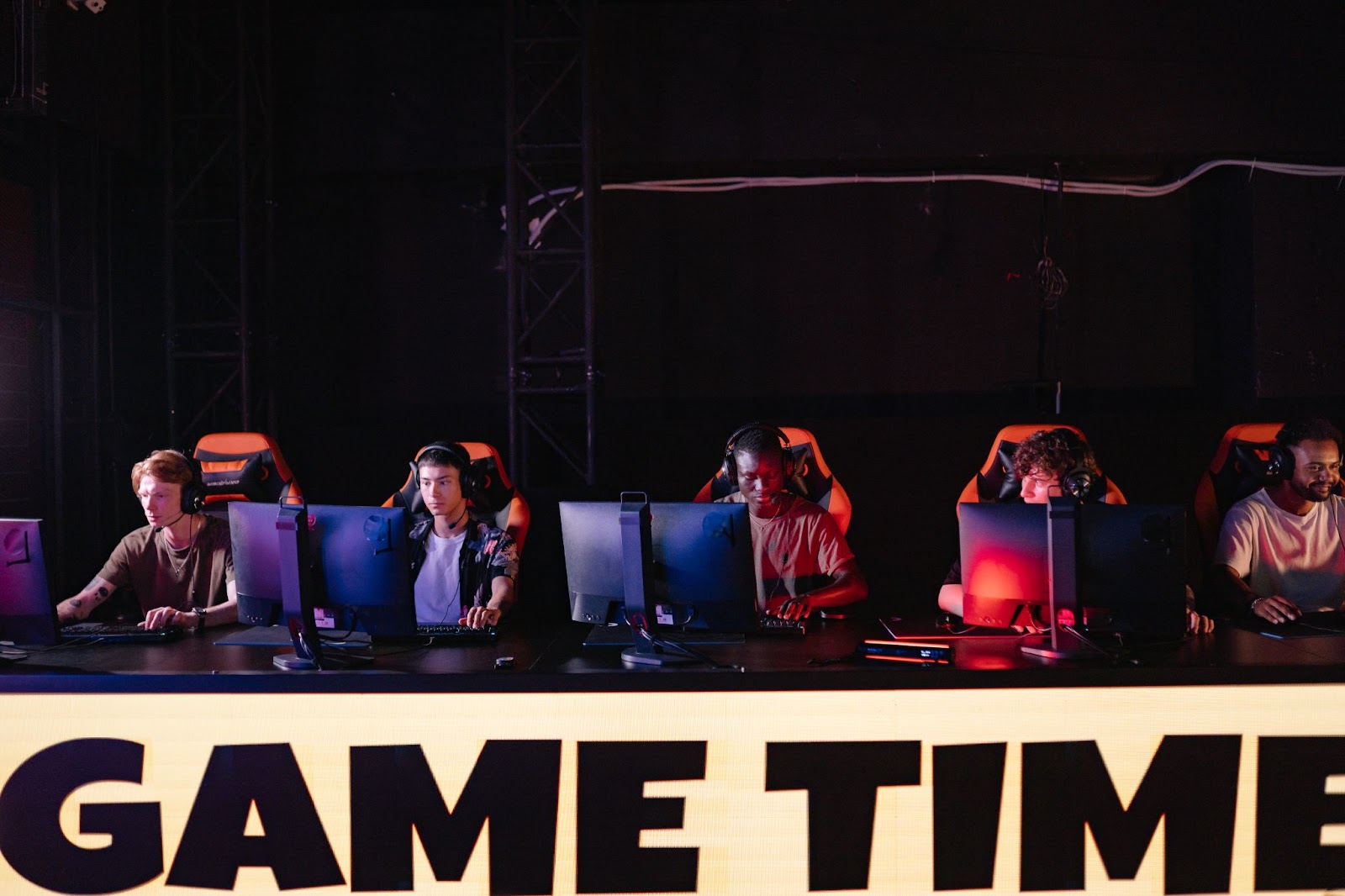
Esports has become increasingly popular across the world in recent years and it has even been proposed to be included in the Olympic Games. This possibility presents many advantages in terms of expanding the scope of the Olympic Games, bringing in more global viewers, and introducing new types of competition.
In this article, we will discuss the potential benefits and advantages of having esports at the Olympics.
What Esports Will be in The Olympics
Esports, or Electronic Sports, is the term used for organized multiplayer video game competitions in which professional gamers from around the world compete in popular video games such as Counter-Strike, Overwatch, Dota 2 and League of Legends. The playing field is typically an online platform (such as a website or sanctioned gaming lobby), although professional tournaments are sometimes held in large stadiums or arenas. Competitors are often rewarded with prizes such as cash, gaming consoles and even trips to exciting locations. Esports has grown from a regular pastime into a booming industry since its commercialization in the late 1990s. With it came events that provided more opportunity and recognition for skilled players who would otherwise have no outlet – which helped spur even more growth across the industry. Today, esports follows its own unique set of rules and regulations that set them apart from conventional sports leagues, giving participants an unprecedented level of competitive play and entertainment to explore. This includes dedicated merchandise lines ranging from official jerseys to gaming chairs, computer peripherals and even energy drinks — all designed to promote this growing form of competitive gaming.
History of Esports
The history of esports is closely intertwined with the rise of modern technology and gaming. The term ‘esport’, which is a contraction of electronic sports, was first used in 2004 in South Korea to describe the rapidly growing phenomenon of professional video gaming. Prior to that, competitive gaming was often referred to as LAN parties or tournament play but there was no unified term that grouped all forms of competitive gaming together. As technology advanced and computers became more powerful, so too did the games that were played on them. Today’s esports shooters, for example, are incredibly complex and heavily stacked with features offering an unprecedented level of depth when compared to their predecessors. But the story doesn’t end there – in addition to game complexity have come advancements in streaming technology allowing players and fans alike to join in the thrill of competing at the highest levels without having to be physically present. This has led to an explosion in viewership and has helped launch esports into a mainstream phenomenon it is today – one with its own teams, leagues and major tournament events featuring exorbitant prizes.
Benefits of Having Esports in The Olympics
The fact that esports could soon become an official event in the Olympic Games has excited a lot of people. By introducing esports to the Olympics, it would open up a whole new world of competitive gaming and give a platform to the often overlooked genre of competitive gaming.
There are a lot of potential benefits to having esports in the Olympics, including increased exposure, increased participation, and more opportunities for athletes and brands to make an impact.
In this article, we’ll explore the various benefits of having esports in the Olympics.

Increased Exposure And Recognition
Having esports as an official part of the Olympic games could help to increase exposure and recognition of the sport, as well as to give esports competitors the chance to gain Olympic medals and gain international recognition for their achievements. With increased exposure through official coverage and broadcasts, non-endemic brands are likely to show more interest in esports, allowing for further expansion of the industry. The acceptance of esports athletes into the Olympics could also bring about advantages for players, like earning greater financial rewards from sponsorships and merchandise sales. Additionally, this could lead to more serious competition by participants striving to prove they are good enough to make it into the Olympic teams. The implementation of stricter regulations around doping and age verification could also be beneficial in making sure that all athletes have a fair chance at achieving their goals. Finally, having official acknowledgements from reputable organizations such as the International Olympic Committee can help esports remove negative stereotypes associated with it. This partnered with a public promotion of messages about healthy lifestyle habits practiced by some professional players allows for positive public representation that can resonate with youth audiences who look up to those players as role models.
Increased Viewership
The inclusion of esports in the Olympics and other international sporting events has the potential to draw millions of viewers and participants from around the world. Studies suggest that increased viewership may be more likely to occur if the event includes more than one country, with larger markets being particularly attractive. For instance, a study by Google shows that over half of respondents – 53 percent – said they would watch esports if multiple countries could choose sides and play against each other (Workforce). This increased viewership is likely to extend production values as well, especially when broadcast in higher-end formats such as 4K or 8k resolutions. Additionally, the sheer amount of playthroughs for any given game ensures that an esports event can reach different markets both domestically and internationally. The integration of streaming platforms such as Twitch will also help increase the level of engagement from viewers, creating additional interaction between teams from across the globe.
Increased Revenue For Sponsors And Players
The inclusion of esports into the Olympics could potentially bring in increased revenues for sponsors, players and local or international businesses and organizations alike. With online streaming becoming increasingly popular, more people from all over the world will be exposed to the excitement of professional esports. This would open up a new market of potential customers and sponsors, who could be enticed with unique packages or products that could be associated with the games surrounding the Olympics – thus increasing sponsorship prospects. Additionally, more players will have access to sponsors who are willing to invest in both amateur and professional gamers. These sponsorships could result in increased salary for players, allowing them to pursue their passion full time without having to resort to other forms of work. Increased salaries coupled with prize money available at tournaments would provide a major financial push for aspiring talents, leading them closer towards their dreams of becoming full-time gamers.
Challenges of Having Esports in The Olympics
As esports grow in popularity, there’s increased discussion on whether esports should be included in the Olympics. This would bring a whole new set of challenges, both for the International Olympic Committee (IOC) and for the esports industry itself. This article will discuss the most pertinent challenges such as issues of regulation, fair play, and the technical requirements for such a large-scale gaming tournament.
Technical Challenges
The integration of esports into Olympics presents a number of unique technical challenges. With the large number of electronic devices and systems used for gaming, as well as the fact that each game has its own version of “official rules”, managing these various elements could pose difficulties. Network latency, data and information security must also be taken into consideration to ensure fair play in all games. Furthermore, depending on the structure of events, additional measures may need to be taken to ensure stability of online infrastructure and tournaments. The issue may become further complicated if some countries dispute a game’s classification, forcing teams to use different versions than those used by other nations or tournament providers.
The upcoming Olympic Games provides ample opportunity for esports stakeholders and organizations to showcase their skills as well as elevate the appreciation and recognition given toward this rapidly evolving form of competition. With an eye towards utilizing modern technology for smoother operations in future events, it is up to everyone involved to communicate effectively, collaborate with respect and seek alignment around key objectives such as fairness in competition and safety from cyber threats when entering the Olympics e-arena with their digital devices.
Regulatory Challenges
The challenge of incorporating esports into the Olympics is the lack of a single governing body for this non-traditional sport. The traditional international sporting organizations (such as FIFA, IAAF, and FIBA) have strict regulations in place that define the rules by which they operate and govern their respective sports. When it comes to esports, there is no global regulatory authority that speaks on behalf of the industry or enforces its rules. When introducing esports into the Olympics, there are significant challenges around regulating games and ensuring fair play without overstepping borders across national governments. Each country may have its own laws regarding gambling, morality and other issues surrounding traditional versus eSport competitions, which could create problems with global consensus on regulations concerning this new Olympic category. In addition, there is an abundance of game genres and each one likely has a different set of policy considerations related to content rating systems that would need to be applied if Esports was going to become an Olympic event. For example, games protagonists often include violence or moral ambiguity – which goes against long-held Olympic values – could take focus away from reaching television audiences who watch for the ethical message rather than for entertainment value that most Esports viewers subscribe for. The challenge here is how can we ensure fairness in competition while still respecting any national regulations or restrictions imposed on eSport tournaments? Additionally, how do you guard against possible accusations of ‘gaming fixing’ or match fixing – especially since there can be cases where game development companies control key elements within their game including difficulty settings or character balancing? All these questions would need to be answered as part of considering whether esports should find itself in such close proximity with several revered international sporting events.

Cultural Challenges
Having esports in the Olympics presents several cultural challenges, including issues of gender equality, cultural identity and representation. Female gamers can face gender-based discrimination in esports tournaments and competitions, making it difficult for them to gain equal footing with their male counterparts in an Olympic setting. Additionally, many nations view and approach esports differently based on their culture, while also wrestling with how to properly promote the discipline without running afoul of their local laws or customs. Finally, there is the matter of representation in regards to both countries and corporations. In the event that esports are added to the Olympic Games, nations may be forced to choose a representative that they deem worthy of competing on their behalf — potentially marginalizing some players from smaller teams or regions. This could bring up a variety of questions as countries around the world vie for limited spots in an attempt to secure a place for their players in one of the world’s most iconic sporting events. In addition, sponsorships from big companies could have a major influence on who is selected for gameplay under the Olympic banner — bringing up ethical concerns about corporate influence and reach at these international events.
Conclusion
Adding esports to the Olympics could open up an entirely new world of possibilities. Not only could esports reach a wider audience, but it could open up new opportunities for players, sponsors, and gaming companies. This could be an incredibly beneficial move for sports and esports, and the possibilities of what could be developed in the future are endless.
Let’s discuss the potential benefits in more depth.
Summary of Benefits And Challenges
The inclusion of esports in the Olympics presents a unique opportunity – showcasing an increasingly popular form of entertainment to an entirely new generation of viewers. The addition also provides a larger platform for gamers to develop their skills and gain more recognition, bringing more attention to the activity as a career for potential future players. However, this decision does come with some inherent challenges as well. While traditional sports require physical training and fitness, esports players must be cognizant of technical abilities such as speed, reflexes, strategy and accuracy. Furthermore, the existing lack of regulations in Esports means that any public institution entering into such an arrangement would need to take extra measures to ensure fair play and maintain a healthy environment for participants. Organizations must also consider finding ways to bridge the gap between societal norms regarding video gaming and traditional sporting events, so that this new form of entertainment is accepted by both sides. Overall though, it can be said that these obstacles are surmountable if they are acted upon responsibly in order to make sure that this exciting new addition has positive results for all involved.
Final Thoughts And Recommendations
The inclusion of esports in the Olympics could be a win-win situation for both the Olympic organizers and the stakeholders of esports alike. Esports have an excellent potential to bring younger generations into the fantastic world of physical sports and bring great recognition to both the professional players and to the participating countries. The Olympics could benefit from engaging a larger audience, generate higher revenues, and strengthen its reputation as a global sports event. For true success, comprehensive regulations need to be developed to ensure fair competition and promote gender equality in esports. Furthermore, authorities will need to center more on amateur competitiveness by developing fair gameplay measures that are codified into rules and regulations for both professional tournaments as well as grassroots level games.
Finally, it is recommended that all stakeholders should rally up behind this issue to support better cooperation between traditional sports organizations, video game publishers, professional teams/players, technology companies, governments/regulators and more in order to create a favourable environment for greater inclusion of esports in the Olympic Games.




